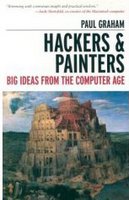Finding Roommates
Who knew that finding a place in SF would be so difficult! As an effort to find potential roommates, I am creating this post which has more detailed information about myself.
I was born in Long Beach in southern California while my dad was on a two year project in the States. My parents returned to Egypt shortly (less than a year) after I was born because the project ended and not because I was born. I was raised in Cairo and lived there most of my life till I transfered to UCLA after my sophomore year. I heared all kinds of misconceptions about Egypt, the most interesting ones were that the president lives in the pyramid, Egyptians speak Egyptian and ride camels. After I graduated, I realocated to the bay area as part of my new job. I have to say, the bay area really rocks and is orders of magnitude better than LA. For the past two years, I have been living in San Mateo within close proximity to work. I decided that this is enough suburb life for me till I retire.
I have wide range of interests that keep evolving over time. The most recent ones are salsa dancing, 3oud or the lute (a middle eastern musical instrument) and painting, all of which are work in progress. I have taken 7 years of french at school and sadly I don't know how to say that in french without going to google translate. I started taking classes again to recapture my previous glory with the romantic language. I enjoy the outdoors from sailing to hiking and I have yet to snowboard at Tahoe. I follow soccer news religiously (mainly the premiership and la liga) and I am a big Barca fan, Go Roonie. I used to play squash regularly at UCLA and for quite some time here till Stanford became more strict letting non students use their courts. I currently work as a software engineer with entrepreneurial aspirations. Its a bumpy road but I won't stop till I get there with there being a constantly moving target. I have interests in technology, business and the AI part of neuroscience. I am in a constant learning phase and in the past two years I have taken classes in tennis, public speaking, improv acting, salsa dancing, painting and french.
I use Pandora for my music needs. You can check my profile here: http://www.pandora.com/people/ahmed_fahmy_2000
I use librarything for documenting the books I have read. You can view a catalog of books I read recently here: http://www.librarything.com






